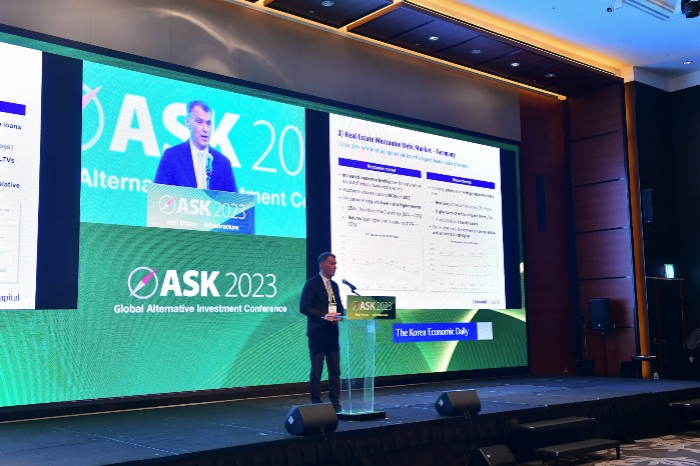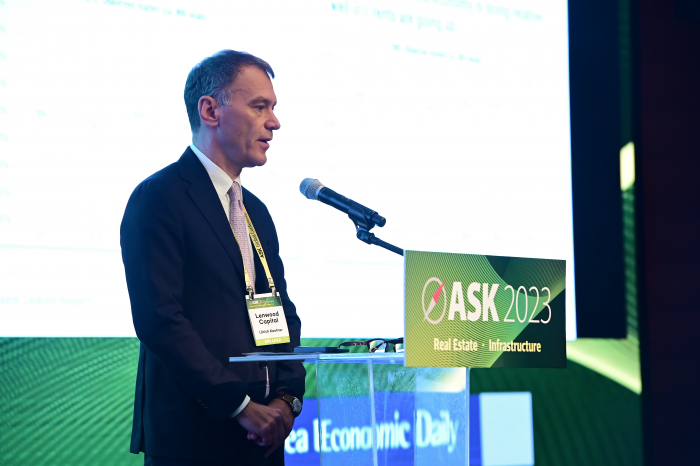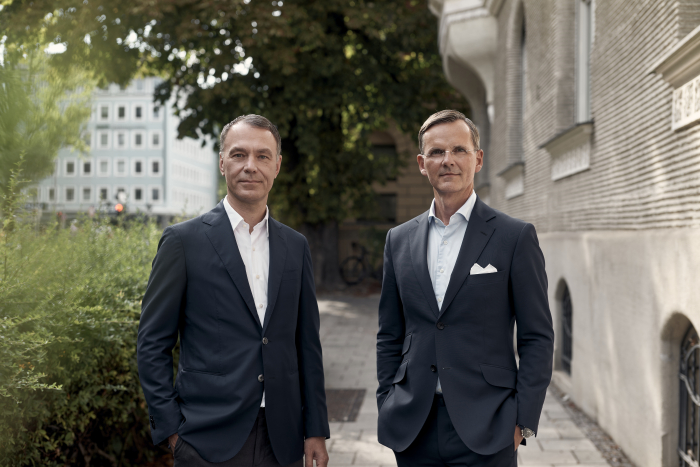Real estate
Germany's real estate mezzanine market to shine in 2023: Lenwood Capital
The world's fourth-largest economy is facing housing shortage and rising demand for premium offices, co-founder Kastner says
Jun 01, 2023 (Gmt+09:00)
5
Min read
Most Read
LG Chem to sell water filter business to Glenwood PE for $692 million


Kyobo Life poised to buy Japan’s SBI Group-owned savings bank


KT&G eyes overseas M&A after rejecting activist fund's offer


StockX in merger talks with Naver’s online reseller Kream


Mirae Asset to be named Korea Post’s core real estate fund operator



The global real estate market is under significant pressure due to increased interest rates and banks' tighter loan standards in 2023. Commercial real estate markets in the US and Europe, particularly the office segment, are challenged as many people continue to work from home post-pandemic, which has led to plunging property values.
But Germany, the largest economy in Europe, has a different story with investment opportunities in real estate debt, says Ulrich Kastner, co-founder and managing director of Lenwood Capital GmbH.
Serious housing shortages, high demand for offices in prime locations and less market volatility than in other European nations make German real estate attractive, he says.
The following is an article from Kastner.

The German real estate market offers great opportunities in credit products and is the key market for global investors at the moment. The window for attractive credit investment opportunities will be limited to the next 24 to 36 months until the full recovery of senior banks' credit portfolios and banks return to new business in the market.
To take a look at the framework in which the market is embedded, Germany is the largest economy in Europe and the fourth largest in the world. Together with China and the US, Germany is the largest exporting nation.
Furthermore, it has the largest real estate market in Europe with its peak in 2021 seeing real estate sales rising to a record €337 billion. Therefore, the forecasts, the framework and the economic outlook are stable, which makes the country interesting for investment.
Inside the real estate market, there are three key topics.
First, in the German real estate finance market, capital requirements of €23 billion to €28 billion are necessary for the next three years to adjust loan portfolios in the senior banking sector to the changed market environment.
The revaluation and the threefold rise in interest rates are putting pressure on loan-to-values (LTVs) and interest coverage ratios, resulting in a massive capital rotation. Banks are forced to use their equity to support their chalk portfolios, leaving little equity available for new businesses. To cover their liquidity needs, private equity will play an important role as well as debt funds.
Second, housing shortages are a key topic, followed by the need to conform to environmental, social and governance (ESG) guidelines in the office sector. Germany is facing a shortage of 400,000 apartments and strong demand for housing forced by urbanization and immigration, which is one of the strongest trends in the market.
Third, the office sector in Germany differs strongly from the US office sector. Low vacancies between 3% to 6% in the top five cities don’t allow tenants to adapt their space requirements to their business growth.
As a result, rents in properties built in the last 10 years continue to rise to the highest levels in new leases. This is supported by the fact that the "work for home" environment is less apparent and people mostly like to go to the office.
Especially prime location and high-quality office buildings are facing high demand and rent increases now and over the last few years. Therefore, the asset class office remains relatively strong compared to other international markets.
The revaluation of the market has resulted in a massive capital rotation in which private debt funds can contribute significantly to the provision of liquidity.
Lenwood is seeing attractive risk margins in revalued assets in the German mezzanine market and is growing significantly deeper into the capital structure in the core assets.
However, the lack of transactions in the commercial real estate market worried many markets observer earlier this year, but market participants should expect transaction volumes to rise in the second half of the year due to pressure from lenders amid ongoing price corrections.
The wave of revaluations of assets, which puts existing loans under pressure, gives opportunity to new loans refinancing now with lower valuations and attractive risk premiums.
The importance of alternative lenders will continuously grow. The role in the market and inside the capital structure is still lower to comparable markets like the UK or the US and it’s very likely for the German market to catch up to the other markets, which will result in an increased market share of alternative lenders and a decreased volume of traditional bank lending.
For foreign investors, it is important to understand that Germany is a real estate market with lower volatility according to long-term orientated mortgage valuation principles, which provides extra protection for lenders when evaluating risks.
The significantly lower yield volatility throughout the property cycles and low deviation from the mean provides protection for lenders in times of distress and cycle downturns, which was overseen by many investors focusing and worrying about the high market LTVs.
In summary, the triangle of limited availability of bank financing, revaluation of assets according to the rising interest rate environment and ongoing demand for core asset classes delivers an attractive opportunity for Asian investors to participate in the rotation of capital.
The recapitalization of capital structures offer great lending opportunities either in the whole-loan and mezzanine sectors with lower LTVs and attractive risk margins. The window of this framework will be limited until German senior banks' credit portfolios fully recover.
The currently reduced bank lending leads to a larger demand for alternative lending with attractive risk premiums, which Asian investors can participate in.

Kastner has over 25 years of experience in the real estate and finance sector. Prior to founding Lenwood Capital, he founded real estate private equity fund Elystan Capital and held other positions in investment banking as a member of the Lehman Brothers’ fixed income division.
Lenwood Capital, founded in 2017 by Ulrich Kastner and Burkhard Schlickenrieder, is an owner-managed private debt firm based in Munich, Germany. Lenwood is a market leader in Germany investing in mezzanine and whole loans. They focus on top cities and prime locations in Germany and Europe, financing standing assets as well as project developments.
Jihyun Kim edited this article.
More to Read
-
 Real estateMirae Asset’s US real estate fund faces heavy losses
Real estateMirae Asset’s US real estate fund faces heavy lossesMay 26, 2023 (Gmt+09:00)
1 Min read -
 ASK 2023Funding gap creates opportunities in private real estate debt: ASK 2023
ASK 2023Funding gap creates opportunities in private real estate debt: ASK 2023May 19, 2023 (Gmt+09:00)
5 Min read -
 Real estateMultifamily emerges as Korean LPs’ top real estate pick for 2023
Real estateMultifamily emerges as Korean LPs’ top real estate pick for 2023May 03, 2023 (Gmt+09:00)
4 Min read -
 Real estateSeoul advised to prepare exit plans for real estate funds
Real estateSeoul advised to prepare exit plans for real estate fundsMay 03, 2023 (Gmt+09:00)
2 Min read
Comment 0
LOG IN


